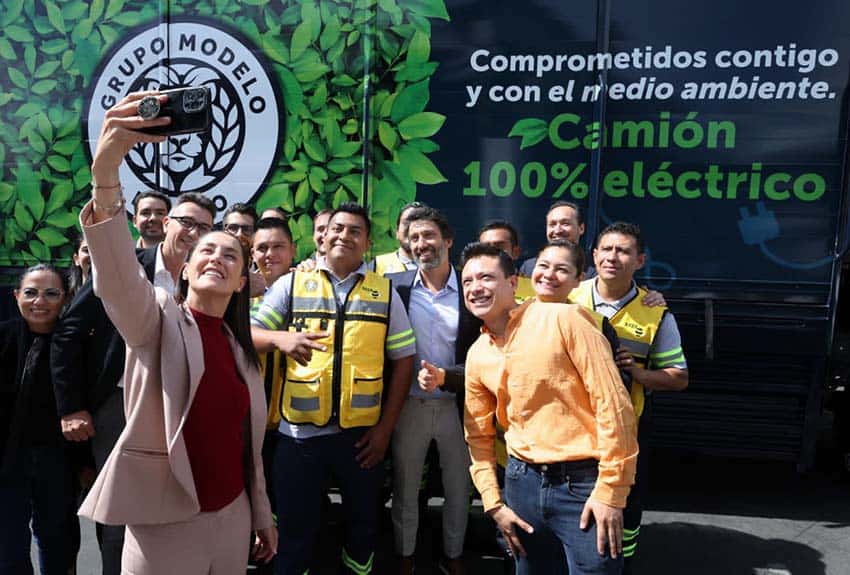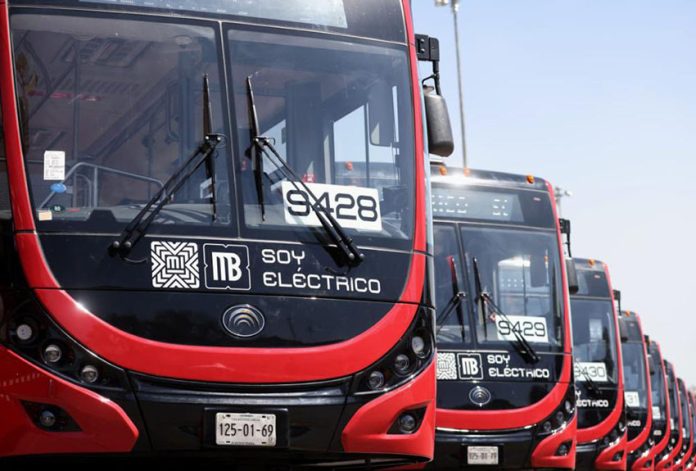Line 3 of the Metrobús public transport system that runs from the Tenayuca station to the Etiopía station in Mexico City is now fully electric.
Mexico City now has the largest fleet of articulated e-buses in Latin America and one of the largest worldwide, according to C40, a network of mayors of nearly 100 of the world’s cities — including Mexico City — who collaborates to confront climate change.

Each unit will have a 57-kilowatt battery that will allow every bus to do eight runs without recharging. Overall, the new 60-unit-fleet will reduce 7,500 tons of carbon dioxide per year — equivalent to planting more than 45,000 mature trees, head of the Mobility Ministry Andrés Lajous said during the inauguration ceremony.
The project required an investment of $900 million pesos (nearly US $49 million) with the participation of the Federal Electricity Commission and private companies Mobility ADO and Yutong, Sheinbaum said.
She also noted that the first trials with electric buses in the city started in 2020.
She also said that the Metrobús’ Line 3 represents a “personal dream and an academic dream” and that due to the government’s “historic investments in electromobility projects,” more than 1 million trips have been impacted by these projects.
Metrobús Line 3 transports an average of 200,000 daily users, connecting existing electric transport systems in Mexico City such as the Metro, Tren Ligero, Cablebús and the Trolebús.
Metrobús plans to switch completely to electrical vehicles by 2035, according to C40’s website.
With reports from Excelsior and La Silla Rota
